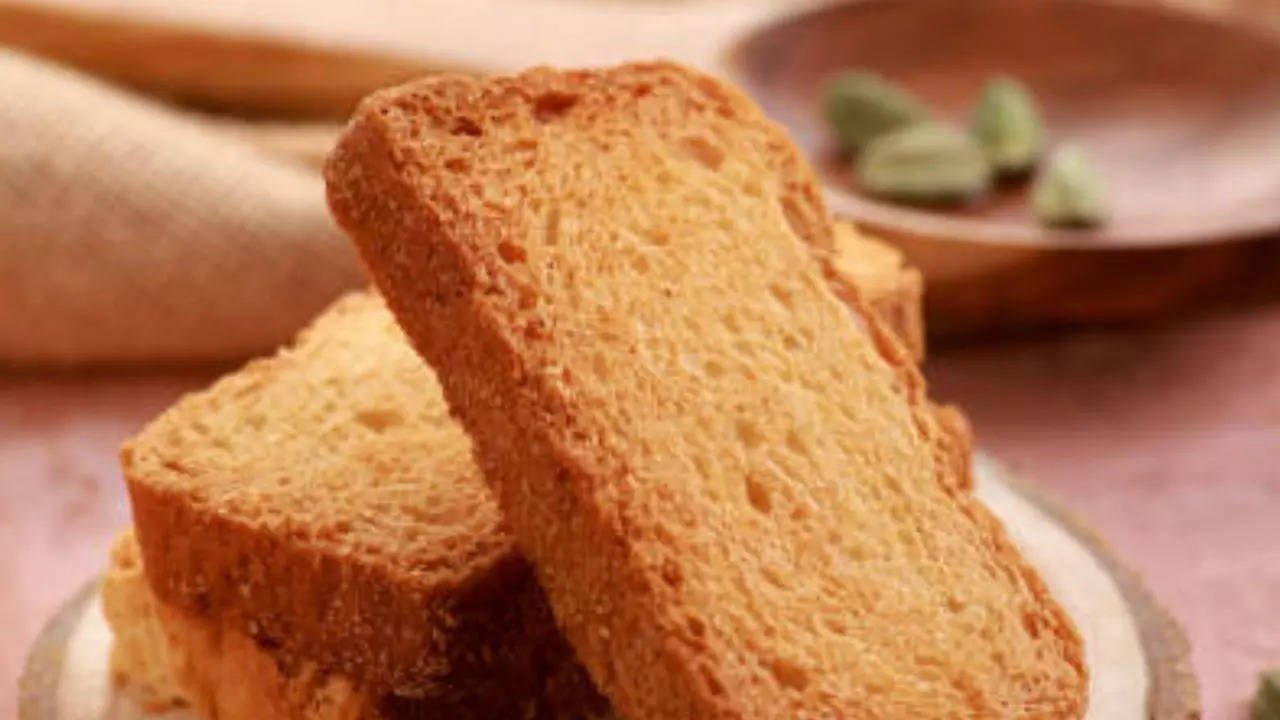Contents
-
news
-
Health
-
Diet
Your favorite tea-time snack semolina rusks could be putting your health at risk – here’s why
Semolina rusks, a popular tea-time snack, may sound nutritious but pose health risks. Due to the high amounts of refined flour, sugar, and palm oil, it disrupts gut health, contributes to weight gain, and increases the risk of heart disease and diabetes. Read on to find out what other healthy options you can have with your hot tea.

Your favorite tea-time snack semolina rusks could be putting your health at risk – here’s how (Image credit: iStock)
Tea time is a favorite ritual for many people, often providing a relaxing break from the day along with breakfast. Among the favorites is the semolina rusk, a twice-cooked biscuit known for its excellent crunch when dipped in tea. Although its texture and taste may make it an ideal tea time companion, its health effects tell a different story.
problem with semolina rusks
Despite being marketed as a light and nutritious option, semolina rusks are far from the health-friendly snack it appears to be. A 2022 study published in the Journal of Nutritional Science showed that most commercially available semolina rusks are made primarily of refined wheat flour (maida), sugar, and refined palm oil, with only 1.8 percent semolina ( There is semolina).
Studies show how frequent consumption of foods made from refined flour disrupts gut health, contributes to weight gain and increases the risk of chronic conditions like diabetes and heart diseases.
Health Risks Associated with Semolina Rusks
– gut health disruption
The Gut Microbiome and Metabolism Study (2021) found that a diet rich in refined flour could significantly alter gut bacteria. Fiber, which is essential for maintaining a healthy microbiome, is virtually absent in semolina rusks. This leads to bloating, constipation and long-term intestinal problems.
– weight gain and obesity
The Global Dietary Patterns and Obesity Risk Report (2020) confirmed that calorie-dense foods with low nutrient content, such as semolina rusks, contribute to insulin spikes and fat storage, leading to higher obesity rates.
– Heart health concerns
A 2021 study in The American Journal of Clinical Nutrition established a strong link between refined palm oil consumption and elevated LDL cholesterol levels. Semolina rusk contains a lot of palm oil, which increases the risk of heart disease.
– risk of diabetes
The Lancet Diabetes & Endocrinology study (2022) underlined the role of sugar-rich foods like semolina rusks in exacerbating insulin resistance. This condition, which is a precursor to type 2 diabetes, is increasingly linked to frequent consumption of such snacks.
Healthy alternatives to Semolina Rusk
If you want to enjoy tea time without compromising your health, consider these nutritious options:
, Whole Grain Crackers, Replace rusks with whole-grain crackers which are rich in fiber and nutrients. Choose brands with minimal added sugar.
– nuts and seeds: Almonds, walnuts and pumpkin seeds provide healthy fats and protein, making them an excellent pairing with tea.
– Fruit: Fresh fruits like apple slices, bananas or berries provide natural sweetness and a dose of vitamins.
-Whole Grain Toast with Avocado: Spread mashed avocado on whole grain toast for a heart-healthy, nutrient-rich option.
– dark chocolate: A small piece of dark chocolate satisfies a sweet craving while providing antioxidants.
– Makhana (Fox Nuts): Lightly roasted fox nuts are low in calories, high in protein and are a great alternative to rusks.
– Dry fruits: Moderation is important, but dried apricots, figs, or raisins can be a fiber-rich and sweet addition to your snack time.
Expert opinion on Suzy Rusk
“Tea time shouldn’t be at the expense of your health,” says London-based dietitian Dr Sarah Johnson. “By replacing processed snacks like semolina rusks with whole foods and nutrient-dense alternatives, you can help your Enjoy your tea guilt-free while supporting overall well-being.”
“Even traditional snacks can become healthier when prepared with whole grains and minimal additives,” says Dr. Mark Davis, a New York-based nutritionist. The key is moderation and choosing nutrient-dense options.”
Get the latest news live on Times Now with breaking news and top headlines from around the world on diet, health and more.


